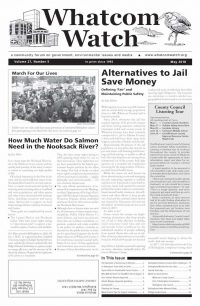“If we think of fascism as a wound from the past that had almost healed, putting Trump in the White House was like ripping off the bandage and picking at the scab,” Madeleine Albright, U.S. Secretary of State from 1997 to 2001, wrote recently. In a commentary in The New York Times and comments in her book, “Fascism: A Warning,” she writes, “The herd mentality is powerful in international affairs. Leaders around the globe observe, learn from and mimic one another.” And Donald Trump, as the “leader of the free world,” is in that group.
A survey for Holocaust Remembrance Day found that 41 percent of millennials — ages 18-34 — believed that two million Jews were killed in the Holocaust when the number is six million, and 66 percent of that group did not know what Auschwitz is. In addition, 52 percent of Americans do not know Hitler was elected and did not gain power by force. (The impact of visiting Auschwitz is overwhelming. When I had a group of students studying in Europe in 2003, we went to Auschwitz, where during the tour three of the women students put their arms around each and were crying. After we drove away I asked for their reactions. No one could immediately respond, but a week later they wrote personal and detailed comments about the visit.)
Freedom House, an international democracy watchdog, reported that just last year 71 countries had “declines in political rights and civil liberties,” and only 35 countries had improvements. “A major development of 2017 was the retreat of the United States as both a champion and an exemplar of democracy,” the organization stated.
Three recent books address the overwhelming problems of the Trump leadership, or, failure of leadership. Michael Wolff’s “Fire and Fury” points out that the Trump organization did not expect him to win and were not at all prepared to govern. Carlos Lozada of The Washington Post in a critical review of James Comey’s book, “A Higher Loyalty,” credits him with addressing the serious flaws in Trump: lack of self-reflection or self-awareness. And in Albright’s book on fascism she defines a fascist as someone who claims to speak for a nation or group, is unconcerned with the rights of others, and is willing to use all means, including violence. She calls Trump America’s first modern “anti-democratic president.” In a country with fewer safeguards, she said, he “would audition for dictator, because that is where his instincts lead.” And she comments that while in the past America would not have accepted him, “I never thought that, at age 80, I would begin to have doubts.”
Spreading Dumb Ideas
How do we read social media without getting caught in fake, false and misleading information? “Such ignorance seems to be plaguing almost everybody — regardless of educational attainment, economic class, age, race, political affiliation or gender,” writes Michael J. Socolow, author and journalism professor. Some very smart people are helping to spread some very dumb ideas, he argues.
Here are two ways to fight the spread of misleading and false information.
First, if the information does not have a link to a credible source, it’s unreliable. “If news breaks on a truly important story, there should be a link to a credible news source,” Socolow advised. For example, this fake item was tweeted 46,000 times: “BREAKING: Haiti just had an emergency high court session resulting in an agreement to unseal & release documents relating to Jean-Claude ‘Baby Doc’ Duvalier’s indictments for money laundering through Trump Tower. Looks like Trump will regret insulting Haiti!” Many people, including recognized writers, passed the false information on without challenging it. In short, we all can be at fault at times.
And how do we know what’s a credible source? First, most major news organizations, high governmental offices and people with solid public reputations should be considered credible unless further search proves them wrong, and they fail to clear up the misinformation. Major news organizations which correct their mistakes quickly and eminent public persons usually can be relied upon for accuracy, Trump being an obvious exception. As president, we now know we cannot trust anything he says because he lies consistently, according to several fact checking groups. Government agencies usually can be trusted for immediate information on public dangers or important public events.
Second, “if breaking news on social media aligns perfectly with your carefully structured view of the world, then pause before liking it or re-tweeting it,” Socolow writes. Most of us, he writes, “have curated a personal news feed to confirm things you already suspected or ‘knew’.” Facebook and Twitter structure your timeline to make it as agreeable as possible. For example, Cambridge Analytica’s recent success was premised on building a distribution system tailored to especially exploit the biases and preconceptions of specified Facebook users. And that information turned out to be biased and unreliable.
“The larger problem is that unpleasant and frustrating information — no matter how accurate — is actively hidden from you to maximize your social media engagement,” he explained.
“Wait” before sending something out. Is the information reliable and trustworthy? “If we all just asked ourselves this simple question immediately before posting or re-tweeting, we’d all be better off,” he writes.
For Facebook and Twitter, which diligently work to keep us on their sites, we must be more skeptical: “If we’re collectively smarter and more skeptical about social media as an information delivery device, it will ultimately lessen the influence that these corporations and trolls have on our civic governance.”
Trump Lies Are Failing
And as for the public’s view of Trump’s comments about Mueller on a “witch hunt,” Greg Sargent of The Washington Post reports a new poll shows his lies are failing. He reports that “that 69 percent of Americans support Mueller’s efforts to investigate possible Russia-Trump campaign collusion, and 64 percent support Mueller’s investigation of Trump’s business activities … that 58 percent support Mueller’s investigation of hush money paid to women who alleged affairs.” No wonder Trump wants to fire Mueller.
For Further Reading
• As Trump rages at Comey, a new poll shows his lies are failing: https://www.washingtonpost.com/blogs/plum-line/wp/2018/04/13/as-trump-rages-at-comey-a-new-poll-shows-his-lies-are-failing/?utm_term=.96a64b116f90
• Dodging Fake Fraud Alerts: https://www.nytimes.com/2018/04/09/technology/personaltech/dodging-fake-fraud-alerts.html?emc=edit_nn_20180418&nl=morning-briefing&nlid=3779932520180418&te=1
• Madeline Albright is Worried: We Should Be Too: https://www.nytimes.com/2018/04/13/opinion/madeleine-albright-worried-trump.html
• Madeleine Albright Warns: Don’t Let Fascism Go ‘Unnoticed Until It’s Too Late:’ https://www.npr.org/2018/04/03/599120190/madeleine-albright-warns-dont-let-fascism-go-unnoticed-until-its-too-late
• How to Prevent Smart People From Spreading Dumb Ideas: https://www.nytimes.com/2018/03/22/opinion/facebook-spreading-ideas.html
• Folks in the Midwest have Trump all figured out:
https://www.washingtonpost.com/opinions/folks-in-the-midwest-have-trump-all-figured-out/2018/04/06/52c7e9ce-39b9-11e8-8fd2-49fe3c675a89_story.html?noredirect=on&utm_term=.2b19b171b941
• Comey’s Memoir Offers Visceral Details on a President ‘Untethered to Truth:’ https://www.nytimes.com/2018/04/12/us/politics/trump-comey-book.html?action=click&module=Intentional&pgtype=Article
____________________________________
Lyle Harris Sr, a former reporter in Washington, D.C., is Journalism Professor Emeritus, Western Washington University.





























